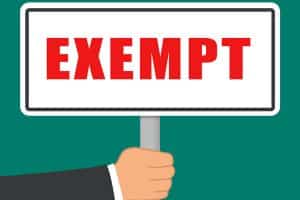SBA economic injury disaster loans (EIDLs) are designed to provide funding to businesses that have suffered substantial economic injury as a result of a natural disaster. Funds can be used to cover ordinary and reasonable expenses to help the business survive until normal operations can be resumed. EIDLs are, however, only available to businesses that…
What is
Current Ratio: What It Is & How It Works [+ Calculator]
The current ratio, also commonly referred to as the working capital ratio, evaluates whether a company can cover its current liabilities with its current assets. The current ratio formula divides a company’s current assets by its current liabilities. It’s a useful calculation that can be used to determine if a company can pay its short-term…
Fixed Charge Coverage Ratio: What It Is & How to Calculate
Fixed charge coverage ratio (FCCR) measures a company’s ability to cover its fixed expenses from its earnings. Lenders may evaluate this as one of several factors in determining whether you qualify for a loan, as well as what interest rate and loan terms you qualify for. A fixed charge coverage ratio above 1.2 is required…
Borrowing Base: What It Is & How to Calculate [+ Calculator]
Borrowing base is a figure that refers to the largest loan amount you can get from a lender. It applies to secured loans and is calculated by taking the lender’s advance rate (sometimes also referred to as its loan-to-value limit) and multiplying it by the value of the collateral. As an example, if you have…
What Is a Subsidiary Ledger & What’s Included in It?
A subsidiary ledger, also called a subledger, is a specialized accounting record that groups transactions from the general ledger (GL) by something of interest, like customer, vendor, or inventory. The total of all the subsidiary ledgers must equal the total of the GL account that they support. While the GL provides a high-level overview of…
What Is 1244 Stock and How Are Losses Reported?
Section 1244 stock is the first $1 million of stock issued by qualified corporations to individuals or partnerships as described in section 1244 of the IRS code. Losses on 1244 stock can be reported as ordinary losses instead of capital losses upon disposition.
Stock is ordinarily considered a capital asset, which would result in a capital loss if the stock was disposed of after a decline in value. Being able to take an ordinary loss on disposal of stock results in preferred tax treatment for 1244 stock. The ordinary loss would be claimed by filing Form 4797, and…
Minimum Wage Exemptions & FLSA Overtime Exemptions
Most employers are legally required to pay a certain minimum wage to their employees (at least $7.25 an hour to comply with federal laws) and pay overtime for hours worked over 40 in a work week (at least 1.5 times the regular pay rate). However, the Fair Labor Standards Act (FLSA) provides minimum wage exemptions…
Shopify Magic: Guide to Shopify’s Free AI Tools
In Shopify’s latest feature release, artificial intelligence (AI) took center stage. So much so that Shopify rolled out a whole suite of free AI-enabled features that are integrated across Shopify’s products and workflows. Known as Shopify Magic, these AI-enabled features are designed to make it easier for the small business owner to start, run, and…







